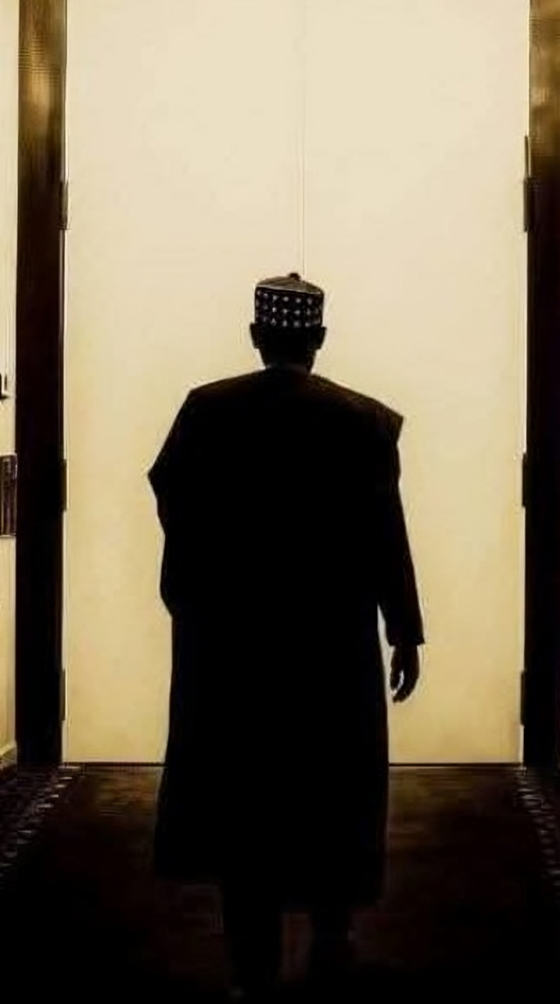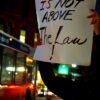Buhari’s Legacy: Reflection, Reckoning, and the Right to Speak.
Buhari’s Legacy: Reflection, Reckoning, and the Right to Speak.

The news as it trends.
Opinion Piece.
Some say we must not speak our true feelings about the death of President Muhammadu Buhari.
But that idea — especially from someone who believed in dialogue and reconciliation — is deeply troubling.
A president of a nation, even if personally known, is not a private relative; he is the architect of systems that shape the lives of millions — whether they live or die.
For many Nigerians, Buhari was not just a political figure — he was a force whose policies had generational consequences.
Countless people rose and died in poverty because of the very systems he created, first as a military leader and later as a democratic president.
That’s not opinion. That’s lived reality.
He was also the only president in Nigeria’s history to have ousted a democratically elected leader — all on record.
And so here it is: when I think of Another Day in Paradise by Phil Collins — a woman calling out to a man for help, cold, homeless, and abandoned — the lyrics echo a truth too familiar.
He walks away, pretending not to hear her.
That rhythm mirrors the everyday Nigerian citizen under Buhari’s rule: calling out for help while leadership turned away, pretending not to see the suffering of the people they were sworn to serve.
And the song reminds us — there is always a day of reckoning.
Because one day, we will all meet in paradise, and when that moment comes is different for each of us.
Governance should never be a war against indiscipline alone — especially if it neglects justice, dignity, and the ability to thrive within one’s own country.
A leader owes citizens more than control — he owes them compassion, opportunity, and protection.
Buhari’s presidency is marked by trauma stretching across generations.
As a military ruler, many were denied justice — some were brutally killed. As an elected president, that pain only deepened.
Take, for example, the incident where soldiers — caught live on camera — invaded a private citizen’s home, firing rounds without provocation.
Sunday Igboho may not be popular with everyone, but he is still a Nigerian citizen—entitled to the protections of the Constitution.
Yet instead of upholding those rights, the state chose to humiliate and target him simply for speaking out.
The same applies to Nnamdi Kanu.
His indefinite detention, with no clear legal pathway forward, echoes the dark tactics of Buhari’s military past—where decrees replaced due process and silence was enforced at gunpoint.
How long can someone be jailed without trial before democracy loses its name?
This is not democracy. This is intimidation, dressed up in the uniform of governance.
A nation that jails its dissenters instead of listening to them isn’t leading—it’s ruling by fear.
Under Buhari’s leadership, children were slaughtered by Boko Haram.
Families were robbed of their farmland.
Unknown men overran peaceful villages. Innocent lives were lost—while some of those responsible were offered amnesty.
Buhari’s regime felt like a slow-burning war against dignity, development, and basic humanity.
So when people say we must stay silent and “not speak ill of the dead,” we must remember: this isn’t just about one man passing — it’s about the suffering he presided over.
Jubilee for some isn’t laughter. It’s release. It’s the tears of the woman whose children slept without food. It’s the graduates who finished school but found no jobs.
It’s those NYSC students slaughtered across the country while the president did little to protect them.
Yes, Buhari recorded a final video asking for forgiveness. But to whom? He did not name the people whose pain he ignored, nor acknowledge the lives lost in silence.
That apology stayed on the microphone — it never reached the hearts it needed to heal.
His legacy is also marked by tribalism.
In a nation as diverse as Nigeria, his appointments reflected a narrow ideology that alienated millions — especially in opportunities and prosperity.
Speaking out about this isn’t hatred. It’s honesty.
And our nation must reckon with it.
Healing is not uniform.
Some find peace in silence. Others find healing in anger, reflection, or tears.
Unless you benefited from the very system that hurt so many, you cannot ask those affected to suppress their truth.
No one wants chaos. But silence masked as civility often feels like betrayal.
So when people condemn Nigerians for speaking up about Buhari’s legacy — I say this:
Reckoning is not disrespect. Truth is not hatred. Reflection is not revenge.
You didn’t choose your truth. You lived it.
And if your truth includes frustration, fury, or even relief — voice it. Because that, too, is part of nationhood.
No one has the right to silence the grief of those whose lives were shaped, scarred, or stifled under a presidency that promised change but delivered little.
Let Buhari’s lifetime and legacy serve as a lesson: Whether you are rich or powerful, we will all meet in paradise one day.
But before that moment comes, ask yourself — what will the next generation of Nigerians say or write about you? That’s what truly matters.
Because as it is on earth, so shall it be in heaven.
Your actions, your choices, and your record will be judged — not by titles, but by how you treated others.
By whether, when it mattered, you spoke up or stayed silent.
There are countless Nigerians today — great people with extraordinary potential — who have been forced to press on with only their faith, living in unfamiliar lands far from home, often working two or three jobs just to survive.
And yet they come from a country overflowing with possibility, blessed with natural resources, rich in culture, and abundant in talent.
But leaders like Buhari — from his military junta to his time as a democratic president — made that land unlivable for many.
Violence ran unchecked. Safety became something you had to pray for.
Kidnappings grew rampant — with millions demanded simply to free the innocent.
And yes — innocent little girls were raped in displacement camps, victims of unspeakable cruelty under Boko Haram.
These are the legacies of Buhari. Not written in glossy headlines, but etched into the daily realities of ordinary people.
Now that he has reached that place called paradise, only one power — the Almighty — will hold him accountable.
Not for the speeches or the titles, but for what he chose to build — and what he allowed to break.
Yetunde B reports for Yeyetunde’s Blog.
Footage / D’ Lester / YouTube.




















Leave a Reply